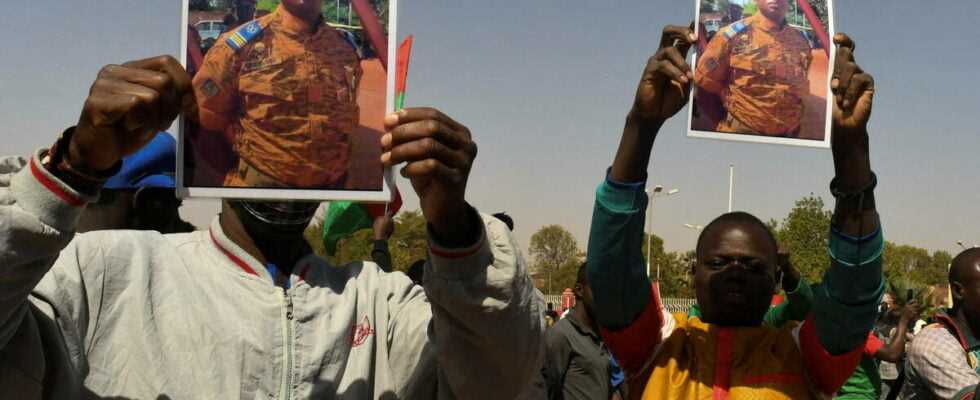The virtual summit will have lasted three hours. Three hours after which the heads of state of the Community of West African States (ECOWAS) decided to suspend Burkina Faso. After the military coup experienced by the country on Monday, it demanded the release of overthrown President Roch Marc Christian Kaboré, placed under house arrest, as well as other arrested officials, said a participant in the meeting on condition of anonymity. . The Heads of State will meet on February 3 in Accra to once again assess the situation in this country.
The virtual summit also decided to send a mission to Ouagadougou on Saturday by the chiefs of staff of the ECOWAS armies, which will be followed on Monday by a ministerial mission. The February 3 summit in Accra, in the presence of the leaders of the region, will study the report of these missions to decide whether or not to impose other sanctions, as it did for Mali and Guinea where soldiers also took power.
On Thursday evening, in his first speech since taking power on Monday, Burkina’s new strongman, Lieutenant-Colonel Paul-Henri Sandaogo Damiba, declared on national television that his country had “more than ever needs its partners”. saying understand the “legitimate doubts” aroused by the coup, he assured that Burkina “will continue to respect international commitments, in particular with regard to respect for human rights”, and specified that the independence of the judiciary would also be “insured”.
Lieutenant-Colonel Damiba also pledged “to the return to a normal constitutional life”, “when the conditions are met”, without specifying an agenda. Television, however, announced Thursday evening a reduction in the curfew put in place on Monday: initially from 9 p.m. to 5 a.m., it goes from midnight to 4 a.m.
The population criticized in particular the ousted president, Roch Marc Christian Kaboré, for not having succeeded in stemming the deterioration in security since 2015, particularly in the north and east of the country. In the wake of Mali and Niger, Burkina Faso is caught in a spiral of violence attributed to armed jihadist groups, affiliated with Al-Qaeda and the Islamic State group, which have killed more than 2,000 people and forced at least 1 .5 million people to flee their homes.
Since taking power, Paul-Henri Sandaogo Damiba has consulted the overthrown ministers as well as the unions. To the former ministers, he asked not to leave Burkina without authorization. To the unions, he promised to consult them and involve them in the transition. In his televised address, he assured that he wanted to associate all the “living forces” of the nation for “a roadmap” with a view to redressing Burkina Faso. Several organizations seem inclined to work with him.
“We have an interest in seeing this army succeed in stabilizing the country”, affirms the Sauvons le Burkina Faso association which ardently demanded the resignation of Roch Marc Christian Kaboré. Several opposition parties to the overthrown president, including the most important, the Congress for Democracy and Progress (CDP) close to Blaise Compaoré – ex-president chased by the street in 2014 after twenty-seven years in power –, have also Brand “their availability to appreciate the vision that will be submitted to them” by the junta.
Roland Bayala, spokesperson for the Coalition of African Patriots of Burkina Faso (COPA / BF) who had called for demonstrations against the passage of a French military convoy through the country in November, asked ECOWAS “to pay attention to its sanctions against the people of Burkina Faso” who does not go “let go”. The question of the future of Roch Marc Christian Kaboré should also arise soon.
Under house arrest, he is in good health according to several sources and has a doctor at his disposal. Thursday evening, the head of the junta did not pronounce his name. On the other hand, he concluded his speech with a motto well known to Burkinabè, that of the country under former President Thomas Sankara: “Fatherland or death, we will win”.
Progressive leader and pan-African icon, Thomas Sankara was killed in 1987 by a coup fomented by relatives, including Blaise Compaoré who had taken power. The trial of his killers, started in October 2021, but put on hold by the putsch, will resume on Monday.
